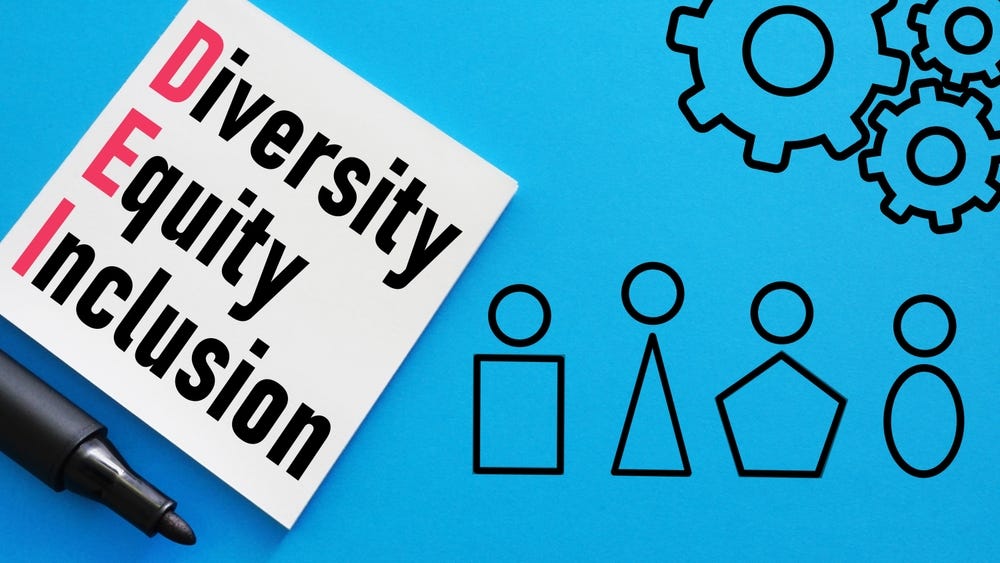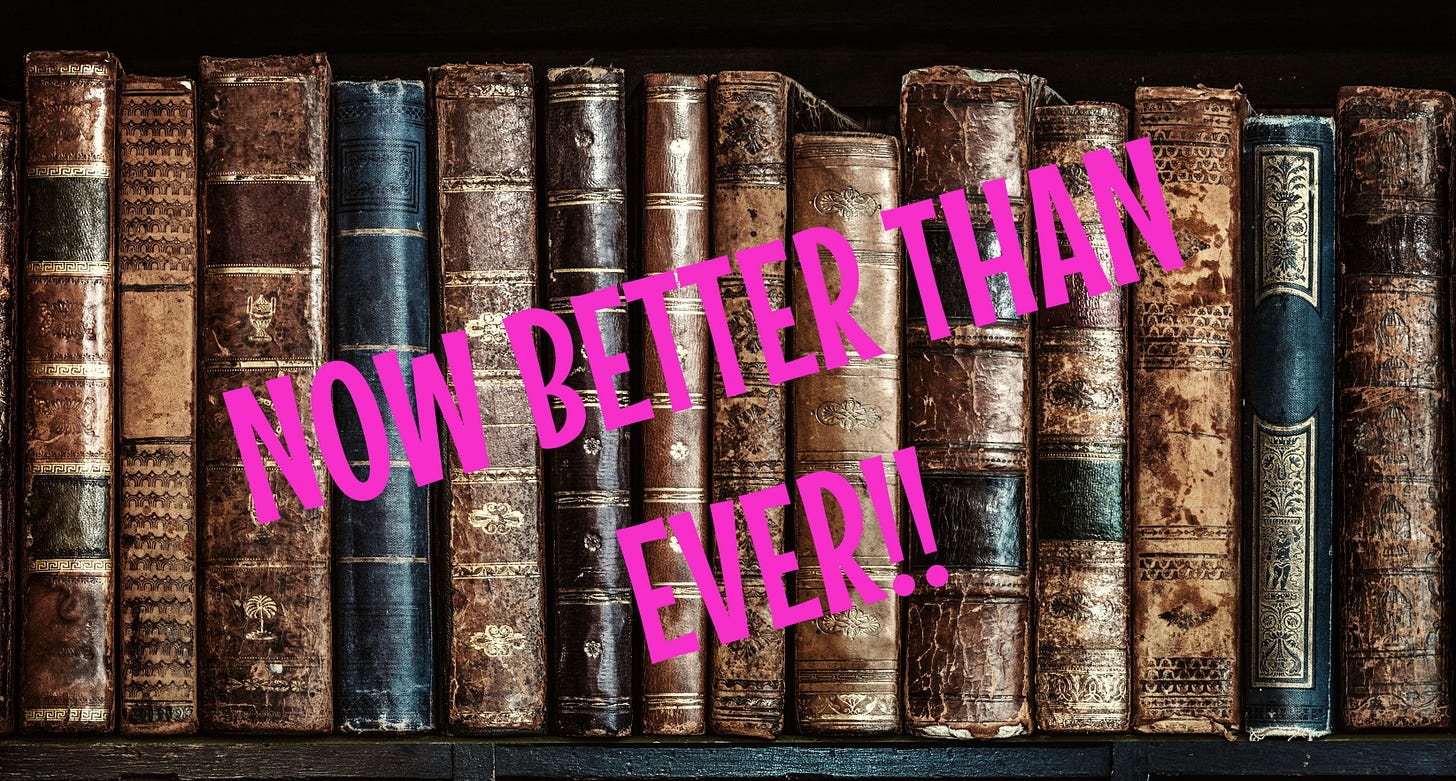E-Pluribus | February 21, 2023
How DEI degrades academic pursuits, community and relationships can unite us, and why shouldn't we update all the classics?
A round-up of the latest and best writing and musings on the rise of illiberalism in the public discourse:
John Sailer: Research, Teaching, and DEI
John Sailer has written much about Diversity, Equity, and Inclusion, and in his latest for Minding the Campus, he demonstrates how insidious DEI practices can be. When DEI is placed on the same level as fundamental functions of educational and scientific pursuits, the end result is a degradation of entire fields of study.
[In a] recent article in the journal Communications Biology [ . . . ], biologists at Emory University explain how they assessed their job applicants’ contributions to DEI at multiple points while hiring two new biology professors.
[ . . . ]
For the Emory search, the job application required a diversity statement, and the hiring committee began by narrowing down its initial applicant pool from 585 to about 45 candidates by scoring three categories equally: teaching, research, and contributions to DEI. A diagram depicts a three-legged stool. On the seat is the word “Excellence.” One leg is labeled “Teaching,” another “Research,” and another “Actions toward DEI.”
The hiring committee included questions about these “Actions toward DEI” in their first interviews, during which candidates had to give an account of their DEI credentials in real time. The interviewers asked six sets of questions. The last one was as follows: “Describe something you did that you are proud of to change a process or how you functioned as part of a program to advance diversity, equity, and inclusion at your current institution? How do you plan on engaging in DEI efforts at Emory?”
After that interview, the committee returned to DEI statements while determining a final slate of candidates. This time, they employed a rubric to score the remaining candidates’ statements—one that does little to hide its ideological orientation.
The rubric suggests a high score for candidates who advance DEI through “community activism.” It likewise rewards candidates for understanding the concept of intersectionality, a term coined by one of the architects of critical race theory, Kimberlé Crenshaw. It also gives a nod to Ibram Kendi’s all-encompassing account of anti-racism, dictating a high score for candidates who articulate “that antiracism practices requires [sic] consistent and long-term growth, reflection, and engagement (and that they are prepared to put in this work).”
Read it all here.
Ed Warren: Rediscovering Our Shared American Values
Former military officer Ed Warren shares at Persuasion how his experiences across the country and across the years have convinced him that what divides Americans need not be as powerful as what unites us. Community and individual relationships should temper the impulse to seek victory at all costs over our political and cultural enemies.
Over the next couple of decades, my personal journey took me into communities with vastly different political views: evangelical Christians, working-class progressives, military service members, and tech start-up professionals. They held views with which I often disagreed, yet they shared the same substantive values that my parents had taught me. By all participating in the same quotidian challenges and joys of everyday life, these different communities naturally converged on a common value system. They all put in long hours to get ahead in their jobs; they all strove to give something back to their communities; and they were all generally kind to their colleagues and neighbors. This pragmatic virtue was our common creed.
Sadly, political and economic elites on both the left and right are pushing strident, purist ideologies that serve their own purposes, abandoning this broadly-held middle-class virtue. But while the leaders of these movements dominate the news, it is the unheralded, day-to-day behavior of regular people that can help to guide us beyond our current cycle of exhausting ideological squabbles.
[ . . . ]
[A]bandonment of classic values was not limited to the MAGA wing of the Republican party. I began to notice a broad contempt for “traditional American values” on the political left as well. It was more subtle and less egregious, but problematic in its own right.
I became aware of it when I began a graduate school dual degree program from Dartmouth’s Tuck Business School and Harvard’s Kennedy School of Government. . .
While the middle-class folks from my previous communities generally agreed that American values and institutions were something to be proud of, despite their flaws, this view was much less acceptable among many of my graduate school peers, who were at the forefront of what would eventually become known as “wokeism.” This passionate subset of students believed that the sins of America’s past necessitated an unsparing and wholesale reinvention of America’s core tenets. It was fashionable among them to condemn an ethos of hard work and personal responsibility as evidence of “White Supremacy culture” or to declare that the American Dream was dead.
Read it all.
Rich Lowry: The Classics — Updated and Improved
The controversy over revisions to Roald Dahl’s body of work (see Around Twitter below) has given Rich Lowry of National Review some ideas, and he’s taken the liberty of proposing enhancements to other authors’ works as well.
Pride and Prejudice, Darcy’s impression of Elizabeth changes, chapter six
Mr. Darcy had at first scarcely allowed her to be
prettynice; he had looked at herwithout admirationvery respectfully at the ball; and when they next met, he looked at her onlyto criticizewith the best of intentions. But no sooner had he made it clear to himself and his friends thatshe had hardly a good feature inhe noticed nothing about her face, than he began to find it was rendereduncommonly intelligentabove average by thebeautifulexpression of herdarknondescript eyes. To this discovery succeeded some others equally mortifying. Though he had detectedwith a critical eye more than one failure of perfect symmetry in her formsome things about her, he was forced to acknowledge herfigurepersonality to be light and pleasing; and in spite of his asserting that her manners were not those of the fashionable world, he was caught by their easy playfulness. Of this she was perfectly unaware; — to her he was only themanperson who made himself agreeable nowhere, and who had not thought herhandsome enoughavailable to dance with.
Read the whole thing.
Around Twitter
Excerpts from a thread by the CEO of the writers’ organization PEN America about the changes the publisher of Roald Dahl’s work is making in the name of sensitivity:
The Foundation for Individual Rights and Expression is out with some ideas on preventing “Diversity, Equity & Inclusion” from steamrolling individuals rights and freedom. David French is a fan:
And finally, Alex Griswold on the Associated Press’s apparent reluctance to call censorship “censorship”:










